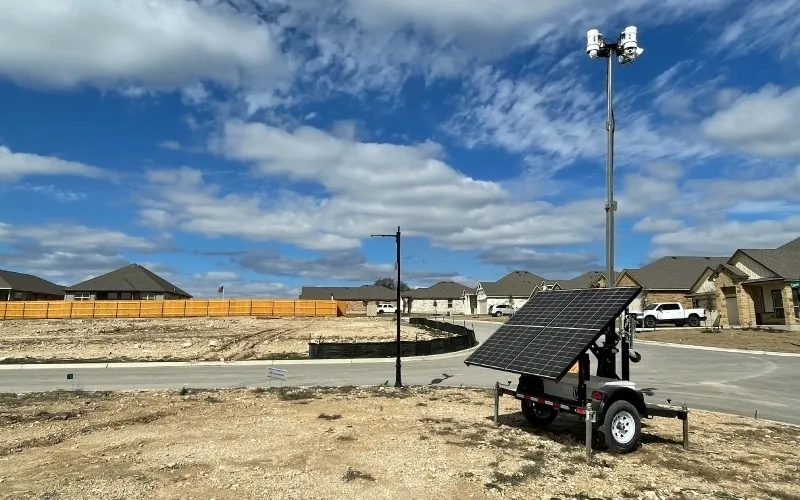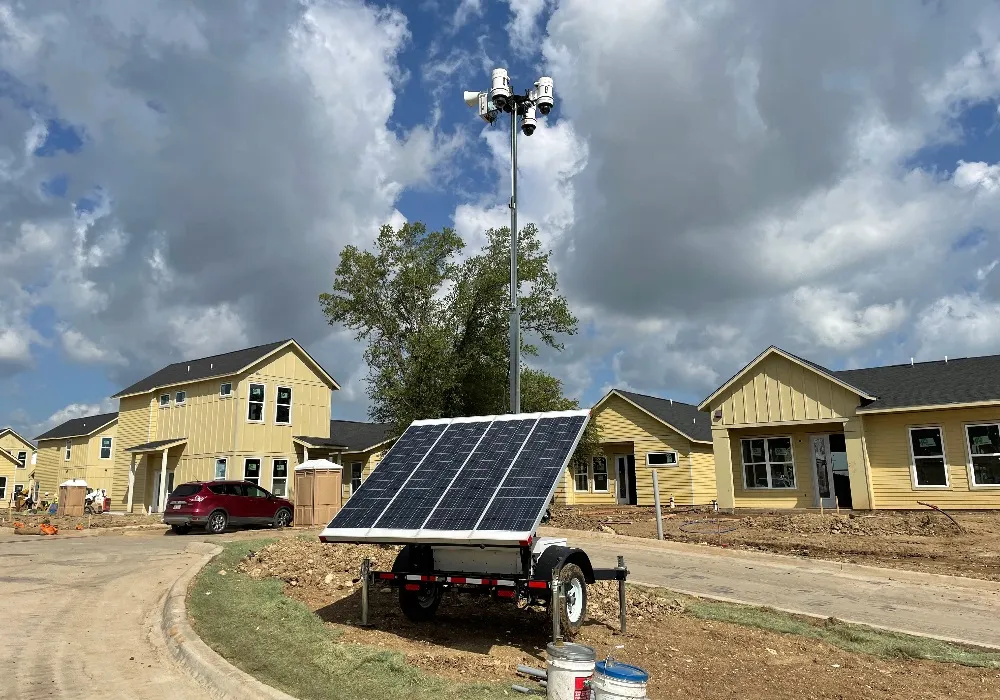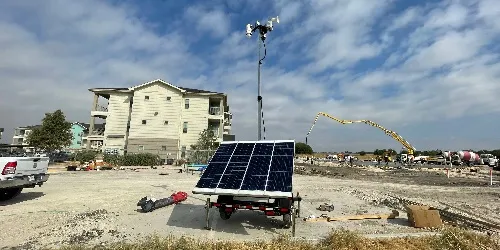Mobile Surveillance Cameras have become a vital part of the overall safety plan of construction job sites. We explore the key ways they assist site managers.
How Can Surveillance Cameras Improve Construction Site Safety?
Surveillance Cameras enhance the security of any construction job site, but they are increasingly playing a critical role in improving workplace safety.
By remotely accessing the live and archived footage from a security camera, Site Managers can review working conditions and practices without needing site visits.
Below, we outline the key use cases for Job Site Surveillance Cameras from a workplace safety perspective.
Why is Workplace Safety Important?
The Bureau of Labor Statistics recorded 1,102 fatal injuries in the construction industry in 2019.
That represents 20% of the total workplace fatalities in the United States. Considering that roughly 6% of the US labor force works in construction, the number of deaths is incredibly disproportionate.
Workplace safety considers the well-being of staff, visitors, and subcontractors at your job site; it implores companies to control worksite hazards to ensure employee welfare.
We recently published a comprehensive guide to mitigating construction site risks for those seeking additional guidance and best practice measures.
Safety Use Cases for Surveillance Cameras
We have supplied mobile security cameras and solar surveillance trailers to construction sites for over two decades. In our experience, the key safety use cases for our cameras include:
Identifying Hazards in Real-Time
Surveillance cameras allow you to monitor working practices and machinery remotely. This real-time situational awareness allows for detecting any changes in conditions or unsafe practices.
The archived video footage from your cameras is also beneficial for reviewing different working patterns and practices. Site Managers can use the footage to amend onsite processes and inform any safety training and briefings.
Increased Physical Security
Surveillance cameras are crucial to construction site security, and improving security positively influences site safety.
Cameras can record and help intervene in situations where employees are at risk of abuse or harassment. They also actively monitor visitors to your sites and document suspicious activity.
Additionally, they can detect, deter, and defend against trespassers who enter to vandalize or steal company property.
Damage caused by malicious intruders can create hazards and safety risks. Surveillance cameras (particularly those paired with remote video monitoring services) are the most effective deterrent against criminal activity.

Compliance Monitoring
Remote video access from surveillance cameras provides a way to monitor all onsite activity, including whether the workforce is adhering to company safety regulations.
Site managers and safety officers can better control safety by taking immediate action on critical situations, whether that’s reviewing working practices, mandating safety training, or replacing equipment.
A typical use case for this scenario would be monitoring specialist equipment to ensure only authorized/trained personnel operate the kit.
Retrospective Review
The recorded video and images from your surveillance cameras provide valuable insight into the aftermath of an accident or injury.
Reviewing the footage can help you ascertain all of the events that preceded the incident and help put measures in place to prevent a similar incident from occurring again.
It can also be used to review near-misses and form part of ongoing safety training and briefings.
The high-quality footage and breadth of detail provided by surveillance cameras help build an incredibly detailed picture of how incidents occur.
Accident Prevention
Surveillance cameras have an essential role to play in accident prevention. Camera footage can alert an operator if a particular piece of machinery is malfunctioning, for example.
Site Managers can also utilize the cameras to monitor high-activity areas to ensure the working conditions are suitable and safe, and whether anything needs to change.
Where the cameras are deployed for these purposes will depend on the site's profile and the accidents you’ll likely experience.
Below are some of the most common accidents on construction sites and ways to mitigate them.
Training and Development
Utilizing video footage of accidents on your sites is a better learning tool than any handbook, and it will resonate more powerfully with your team.
Alongside identifying how incidents occur, Site Managers can use video footage to assess whether your training has been effective.
Repeat occurrences of similar incidents will highlight an urgent need for company-wide training and assessment.
Creates a Positive Culture
We have previously outlined on this website how the presence of a surveillance camera positively influences the behavior of the recorded subject.
Typically this behavior change relates to preventing criminal acts, but the same is valid for encouraging adherence to safe working practices on a job site.
Workers will be aware of the presence of the cameras and understand their working practices have to follow the safety standards that have been set.
There is the potential for this to be viewed negatively and employees being ‘spied’ on, so it is essential to communicate when and how you are operating the cameras and present adequate justifications for their use.
Ultimately, safety is critical for everyone, but it is equally vital for a company culture that staff are engaged with your methods.
Security Cameras and Surveillance Trailers for Construction Sites
Our managed mobile surveillance cameras provide construction job sites with multi-application benefits, including theft prevention, Time Lapse Video recording, and remote project management.
Our state-of-the-art security cameras are backed by a managed service that includes equipment installation, alarm monitoring, maintenance, and ongoing US-based technical support.
Ready to find out how Mobile Surveillance Cameras can assist with site security? Speak to our team at 877 805 9475 or request a call back


